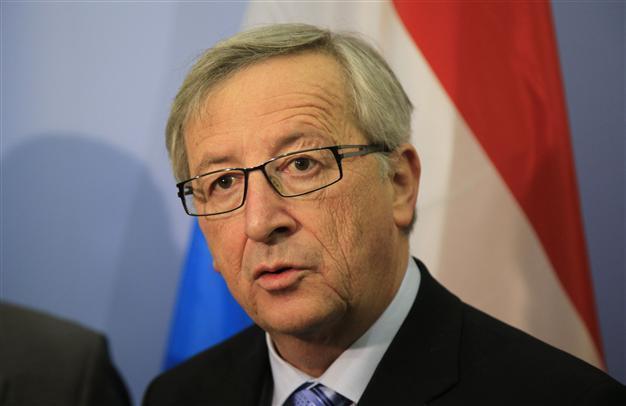Hands off our finance sector, Luxembourg warns
LUXEMBOURG - Agence France-Presse

Luxembourg's Prime Minister Jean Claude Juncker. AFP photo
Luxembourg railed on Wednesday against what it fears is a new eurozone position that oversized finance sectors must be scaled back in line with national economic output following the Cyprus banking debacle.
Former Eurogroup chairman Jean-Claude Juncker's government is "concerned about recent statements and declarations that were made since the crisis in Cyprus sharpened", a news release said.
Specifically, it rejects "general assessments of the size of the financial sector in relation to a country's GDP (gross domestic product) and the alleged risks this poses for economic and fiscal sustainability".
The government said the Luxembourg finance sector acts as "an important gateway for the euro area by attracting investments and thus contributing to the general competitiveness of all member states".
Juncker's successor as eurozone head, Dutch Finance Minister Jeroen Dijsselbloem, has said that the Cypriot financial sector was too big compared with the country's overall gross domestic product, a problem that has forced Cyprus to break up one Cypriot bank and downsize another in exchange for an international bailout worth 10 billion euros ($13 billion).
While few eurozone economies depend on the banking sector as heavily as Cyprus does, Berenberg Bank economists noted on Monday that bank assets in three other eurozone countries were bigger as a percentage of gross domestic product than in Cyprus, where they amounted to more than 700 percent of GDP in 2011.
In Luxembourg, the percentage was an astounding 2,500 percent, the economists said, while in Ireland they were more than 800 percent and in Malta close to 800 percent. The eurozone average was given as 360 percent.
"The financial sector is oversized compared to the rest of our economy," a senior Luxembourg government official nevertheless told AFP on condition of anonymity.
And yet, European Union Markets Commissioner Michel Barnier was quick to insist earlier this week that "the problem is not Luxembourg -- it was certain banks in Ireland, in Spain, in Portugal." One of six founding members of the EU, Luxembourg is one of just four eurozone states -- alongside Germany, the Netherlands and Finland -- to have maintained a triple-A classification with all three major global credit rating agencies Moody's, Fitch and Standard & Poor's.
Its debt-to-GDP ratio is in the region of 20 percent -- compared to a target 120 percent for bailed-out partners -- and its deficit is well within the regularly-ignored EU threshold of three percent.
Yet Luxembourg has increasingly come under an EU microscope in post-global financial crisis legislative clean-up action, primarily for its culture of banking secrecy.
French finance guru Jacques Attali for one has raised the issue of "banking haven" Luxembourg, saying "questions need to be asked about other centres in Europe too." Luxembourg Finance Minister Luc Frieden is on record as saying he wants finance clients to come to Luxembourg "not to escape taxation... but because our products and services are better geared to international needs." The Luxembourg government said the sector includes 141 banks from 26 countries and 3,840 investment funds sold in 70 other countries.
